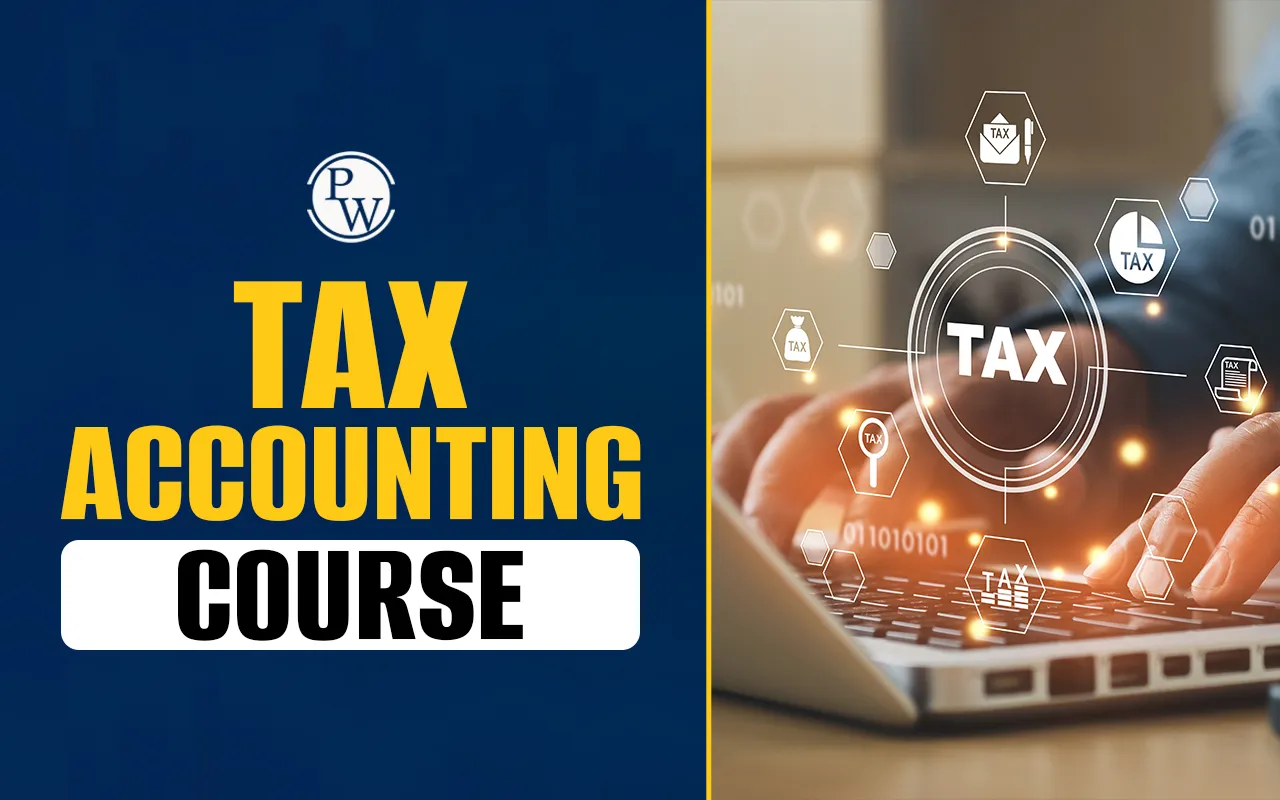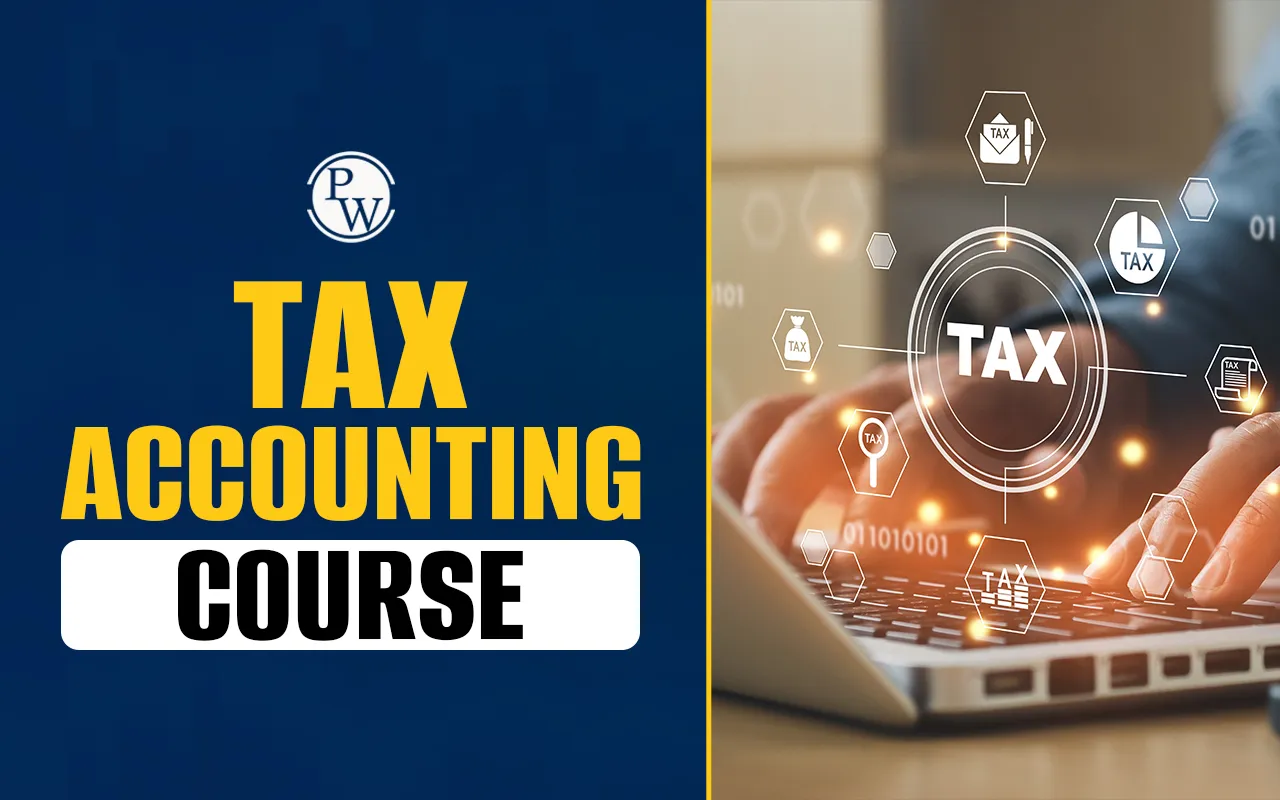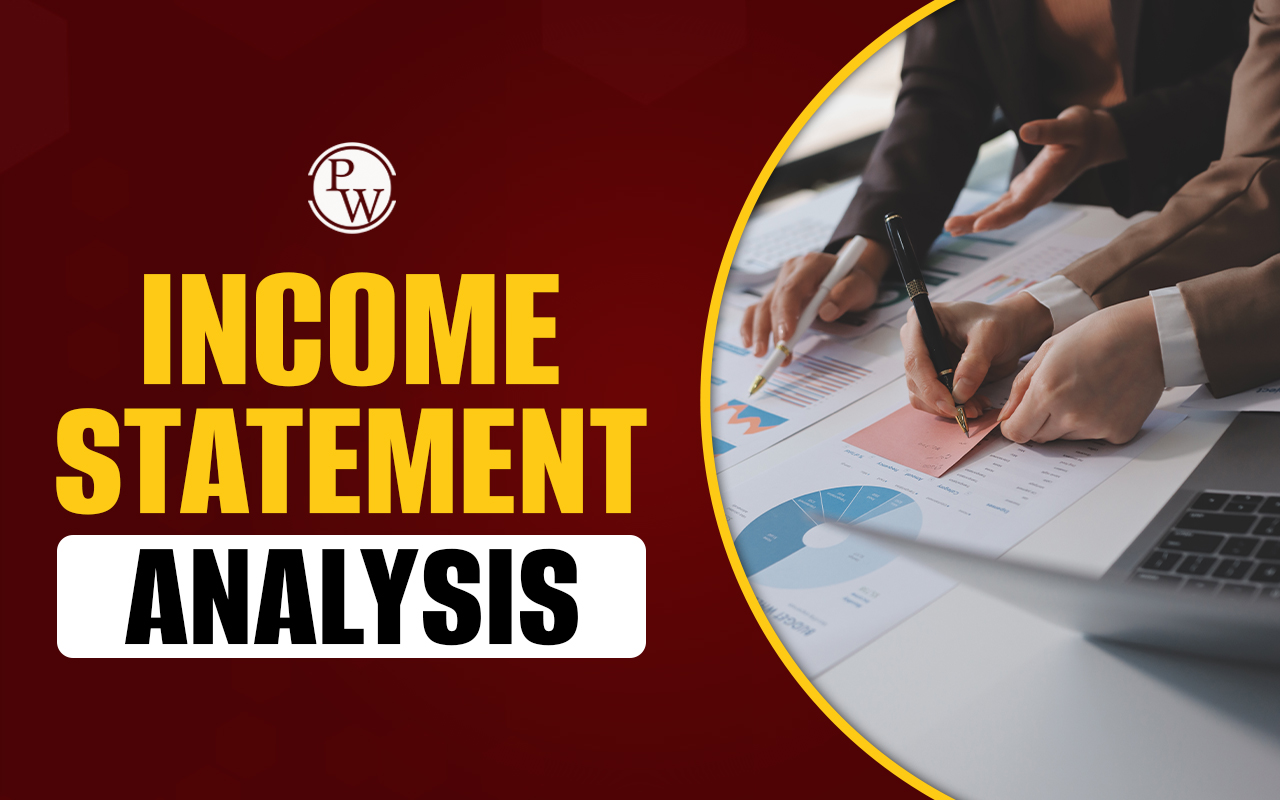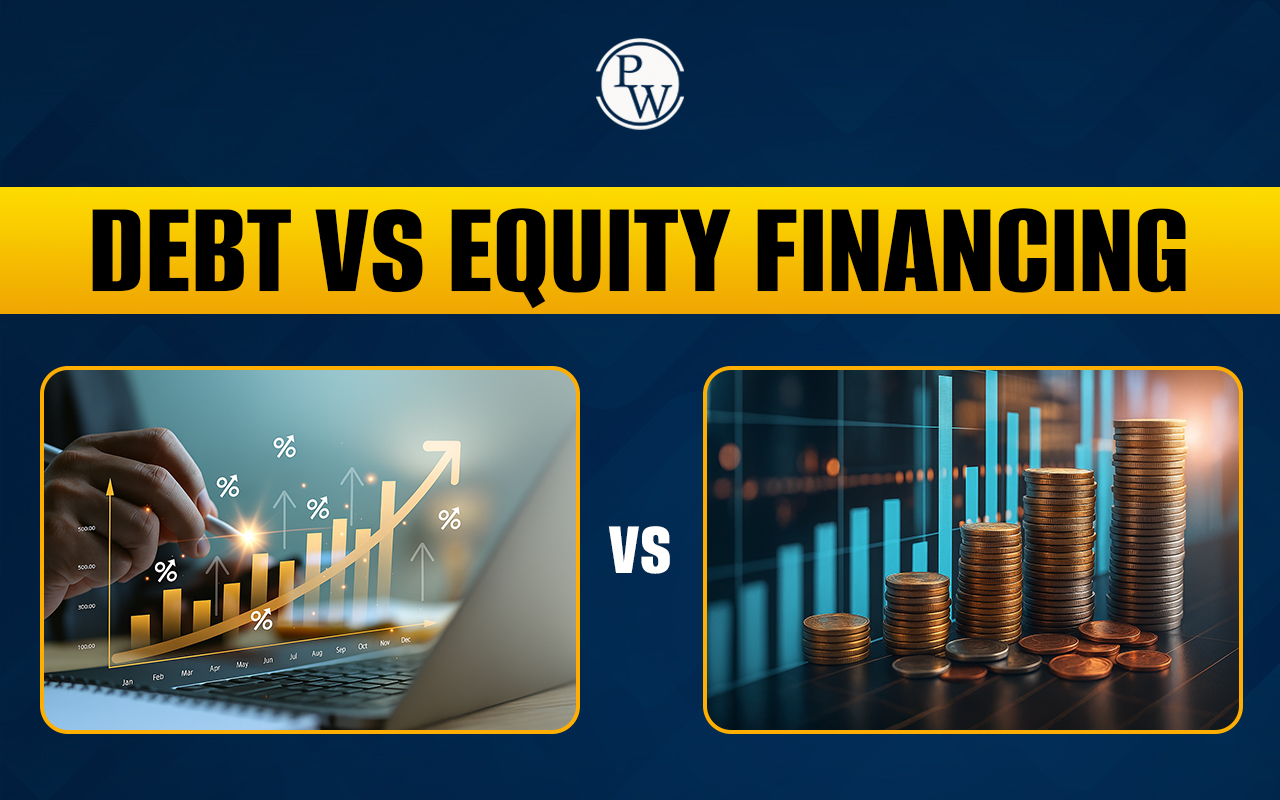

Tax Accounting Course is an accounting certification course that teaches the fundamentals of tax laws, tax returns, and tax compliance. It discusses significant areas of income tax, GST (Goods & Services Tax), TDS (Tax Deducted at Source), and corporate taxation. This course helps the learners to understand the calculation, reporting, and management of taxes in personal and business finance with Taxation accounting examples for better clarity.
This course is important for students, accounting professionals, and anyone looking to build a career in finance, accounting, or tax consultancy. It provides practical knowledge to handle tax-related tasks accurately and legally. To start learning, you can begin with basic materials or enroll in Professional Taxation courses or a structured Tax Accounting Course that offers lessons and real-life case studies. Read complete information regarding what is Tax Accounting Course, benefits of Tax Accounting Course, syllabus, and more below.
Tax Accounting
Tax accounting is one of the types of accounting that involves computing, reporting and filing taxes based on tax law and regulations. Unlike general accounting, tax accounting covers only transactions related to tax payments such as income tax, GST, TDS, and other taxes. Learners often practice through Taxation accounting examples to build practical skills.
It is used by individuals, businesses, and organizations to make sure taxes are paid correctly and on time. The main goal of tax accounting is to ensure tax compliance, avoid penalties, and manage taxes efficiently.
Key areas in tax accounting include:
-
Income reporting: Recording taxable income, deductions, and investments.
-
Tax compliance: Filing tax returns correctly and on time.
-
Tax planning: Organizing finances to reduce tax liabilities legally.
-
Risk management: Avoiding legal issues through proper records.
Tax accounting is important for financial transparency, legal compliance, and better tax planning in both personal and business finance.
Types of Tax Accounting
Tax accounting can vary based on the type of entity and its specific tax responsibilities. There are several main types of tax accounting, each serving a different purpose. Students learning through Professional Taxation courses are often trained using Taxation accounting examples for the following categories:
- Individual Tax Accounting: This type focuses on personal income taxes. It contains salary, capital gains, rent receipt, interest and deductions. It assists individuals in making the correct tax returns and minimizes their individual tax costs as per the applicable tax guidelines.
- Corporate Tax Accounting: Corporate tax accounting involves application of information in Tax on businesses and companies in terms of the business income, expenses, depreciation and tax credits. It demands a high level of documentation and assists in satisfying the related corporate tax policy and makes the taxes more efficient.
- Trust and Estate Tax Accounting: This applies to trusts, estates, and fiduciaries managing assets. It involves taxation on income from trust assets, distributions to beneficiaries, and estate transfers. The goal is proper tax reporting for inheritance and asset management.
- Partnership Tax Accounting: Designed for partnerships and LLPs, this type focuses on pass-through income and losses. Each partner is taxed individually on their share. It includes tracking contributions, withdrawals, and profit-sharing.
- Nonprofit Tax Accounting: The nonprofit organizations employ this to maintain tax exemption. It does not include unrelated business income, program revenue and grants, and donations. The goal is to remain compliant and maintain nonprofit tax benefits.
Tax Accounting Course in India
A Tax Accounting Course in India is a professional program that teaches students how to manage taxes as per Indian tax laws and accounting standards. The course focuses on key areas like Income Tax, GST (Goods and Services Tax), TDS (Tax Deducted at Source), and corporate taxation. It helps learners prepare and file tax returns, maintain tax records, and follow legal compliance procedures with practical Taxation accounting examples.
These courses are ideal for students, accounting professionals, business owners, and anyone interested in finance and taxation. Tax accounting courses in India are available in various formats such as certificate courses, diploma programs, and postgraduate studies. Many programs also include training in Tally, Zoho Books, and Excel for practical skills.
How to become a Tax Accountant
Tax accountants utilize their comprehensive understanding of tax law to assist customers in filing proper tax returns and saving money by lowering their tax bill and avoiding fines. In this article, we will go over how to become a tax accountant in detail. Learn the particular procedures required to begin a career in tax accounting.
Bachelor's Degree: The majority of tax accountants require a bachelor's degree in accounting or a related discipline, such as economics or business.
Real-World Experience: Gaining practical experience throughout your academic years through an internship or co-op program will help you acquire skills that will help you land a job after graduation.
Consider pursuing a master's degree: Some companies prefer to recruit tax accountants with master's degrees, even if it is not required by the industry. A master's degree in accounting might also help you meet the requirements for CPA license.
Become a CPA: Tax accountants may obtain a CPA license by passing the CPA exams.
Professional certificates: Tax accountants can obtain professional certificates to demonstrate their skill in this subject.
Continuing Education: Tax accountants, particularly those with CPA licensing or other qualifications, must take continuing education hours to keep their credentials valid.
Business Accounting and Taxation Course
Business Accounting and Taxation (BAT) course combines theoretical and practical learning. It includes financial statements, budgeting, GST, Income Tax, and accounting software training. Such programs, similar to Professional Taxation courses, often include hands-on practice with Taxation accounting examples to strengthen practical learning.
Tax Accounting Course Eligibility Criteria
Tax Accounting Course in India is open to students and professionals at different levels. Below is the eligibility criteria based on the type of course:
|
Tax Accounting Course Eligibility Criteria |
|
|
Course Level |
Eligibility Criteria |
|
Certificate & Diploma |
|
|
Undergraduate (UG) |
|
|
Postgraduate (PG) |
|
Tax Accounting Course Syllabus
Tax Accounting Course syllabus is divided into both a theoretical and a practical aspect of accounting and taxation. The principal subjects and topics are listed below:
|
Tax Accounting Course Syllabus |
|
|
Subject Area |
Topics Covered |
|
Income Tax Law & Practice |
Tax slabs, deductions, assessment year, filing income tax returns |
|
GST (Goods & Services Tax) |
GST structure, input tax credit, GST returns, exemptions |
|
Fundamentals of Accounting |
Journal entries, ledger, trial balance, financial statements |
|
Advanced Accountancy |
Partnership accounts, branch accounts, hire purchase transactions |
|
Cost Accounting |
Costing techniques, overheads, material pricing |
|
Financial Management |
Capital structure, cost of capital, working capital management |
|
Business Law |
Indian Contract Act, Sale of Goods Act, basic regulatory frameworks |
|
Accounting Software Training |
Practical training in Tally ERP, QuickBooks, Zoho Books, and Excel |
Salary of Tax Accountant in India
Salary of a Tax Accountant in India varies depending on a number of factors namely experience, job role, company and location. Tax accountants with an excellent background in GST and TDS, Income Tax, and financial and financial compliance usually earn more.
|
Tax Accountant Salary |
|
|
Experience Level |
Average Annual Salary (INR) |
|
Entry-Level (0–1 yrs) |
₹3.7 – ₹4.2 Lakhs |
|
Early Career (1–4 yrs) |
₹3.8 – ₹5.5 Lakhs |
|
Mid Career (5–9 yrs) |
₹6 – ₹10.5 Lakhs |
|
Senior Level (10+ yrs) |
₹12 – ₹16.3 Lakhs |
Tax Accounting vs Financial Accounting
Understanding the difference between Tax Accounting and Financial Accounting is important for students and professionals in the field of accounting and finance.
Key Differences Between Tax Accounting and Financial Accounting |
||
|
Feature |
Tax Accounting |
Financial Accounting |
|
Purpose |
To keep tax law compliant and pay less tax |
To demonstrate performance to the stakeholders financially |
|
Regulations |
According to Income Tax Act, GST laws, etc. |
According to the GAAP or IFRS |
|
Focus Area |
Transactions affecting taxable income |
Any income, costs and assets, and debts |
|
Main Users |
Tax authorities, internal teams |
Investors, creditors, regulators |
|
Accounting Methods |
Cash, accrual, or hybrid (tax laws) |
Mostly accrual method as per accounting standards |
|
Revenue Recognition |
Based on cash flow or tax rules |
Based on when revenue is earned or incurred |
|
Depreciation |
Uses accelerated methods for tax benefits |
Uses straight-line method for consistency |
|
Reporting Frequency |
Tax returns on an annual basis, on a quarterly basis |
Financial statements released on quarterly and yearly basis |
If your interests are working in finance, tax, or accounting domains you need to acquire the necessary knowledge and skills. All these may be achieved through a structured course in Financial Accounting to enable you to learn how to run business finances, keep proper records and be tax compliant. Finance Certification Courses by PW (Physics Wallah) are designed for learners who want to develop strong foundations in accounting principles, financial reporting, and taxation. The course offers practical learning through online lessons, real-world examples, and expert guidance. Explore the Finance and Tax Accounting Course by PW to gain confidence in handling financial data!
Accounting and Taxation Course FAQs
What is the best way to learn tax accounting?
Who is eligible for accounting and taxation courses?
How to become a tax accountant in India?
What are the different types of tax accounting?
What can I expect from an accounting course?
How are Taxation accounting examples helpful in learning?
Is a Tax Accounting Course better than a general accounting course?













